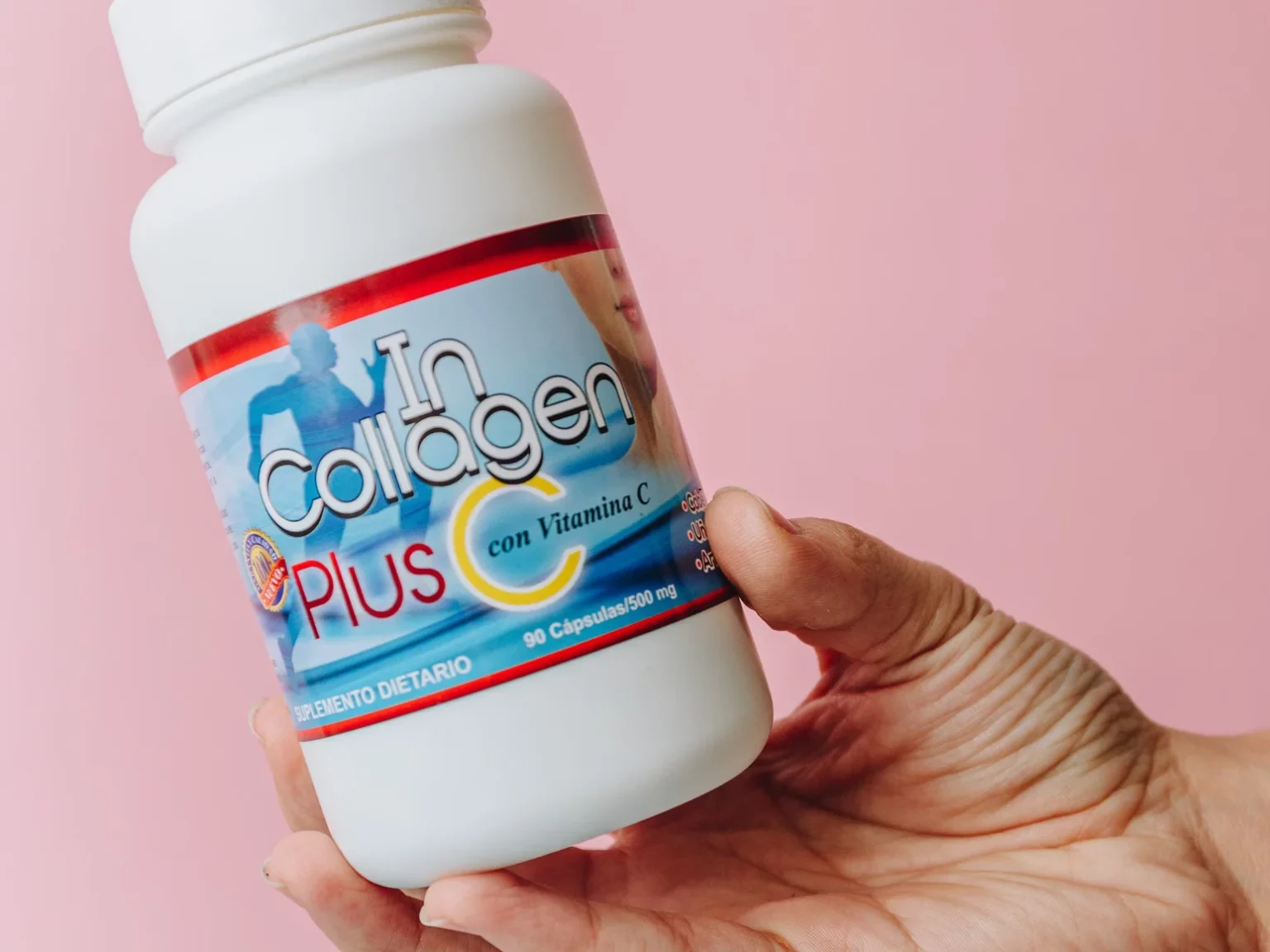Porcine collagen is one of those buzzwords that has been making its way around the skincare scene lately. Think of it as a secret weapon for youthful, radiant skin. But what exactly is it, and why has it captured the attention of beauty enthusiasts around the world?
What Is Porcine Collagen?
Let’s start by getting acquainted with this intriguing ingredient. Porcine collagen is a type of collagen derived from pigs, specifically their skin, bones, and connective tissues. You might be thinking, “Wait, collagen from pigs? Really?” Yes, really! In fact, porcine collagen has a strikingly similar structure to human collagen, which is one of the reasons it’s so well-received by our skin.
Collagen, in general, is a protein that plays a crucial role in providing support, elasticity, and strength to our skin, hair, nails, bones, and connective tissues. As we age, our bodies produce less collagen, leading to sagging skin, wrinkles, and weakened joints. Porcine collagen swoops in as a potential solution, offering a source of collagen that can be utilized in various skincare products and even medical applications to rejuvenate and restore our bodies.
Porcine Collagen Benefits
Now that you know what porcine collagen is, let’s talk about why it’s been stealing the spotlight in the world of skincare. This superstar ingredient comes with a host of benefits that can make a real difference in your skin’s appearance and overall health:
- Improves skin elasticity and firmness: Since porcine collagen is structurally similar to our own collagen, it’s easily absorbed and utilized by the skin. This can lead to increased elasticity, firmness, and a more youthful appearance.
- Reduces wrinkles and fine lines: As we age, our collagen production slows down, and those pesky wrinkles and fine lines start to creep in. By adding porcine collagen to your skincare routine, you’re essentially giving your skin a collagen boost, which can help minimize the appearance of these age-related concerns.
- Promotes skin hydration: Porcine collagen has excellent water-binding properties, meaning it can help your skin retain moisture. This added hydration can lead to plumper, smoother skin that feels soft and supple to the touch.
- Accelerates wound healing: Believe it or not, porcine collagen isn’t just great for aesthetic purposes. Studies have shown that it can help support wound healing by promoting the formation of new blood vessels and encouraging the growth of new tissue.
- Strengthens hair and nails: While porcine collagen is primarily known for its skin benefits, it doesn’t stop there. This powerful protein can also work wonders for your hair and nails, providing them with the support and strength they need to stay healthy and look fabulous.
How To Add Porcine Collagen To Your Skincare Routine
Ready to incorporate porcine collagen into your skincare routine and reap its incredible benefits? There are several ways you can do this, depending on your preferences and lifestyle. Here are some tips on how to add porcine collagen to your skincare routine:
Collagen supplements
By far the best way is by taking porcine collagen supplements, as collagen molecules are far too large to be absorbed through the skin (so suspending Porcine Collagen within things like creams/serums will do literally nothing). Collagen supplements are often paired with vitamin C too. Vitamin C plays a crucial role in collagen synthesis, as it helps to convert the amino acids proline and lysine into collagen fibers.
These supplements come in various forms, such as capsules and powders – pick whichever one you like the sound of the most.
Professional treatments
If you’re looking for a more targeted approach, consider talking to a dermatologist or skincare professional about treatments that utilize porcine collagen. These treatments may include collagen injections, microneedling with collagen-infused serums, or other advanced therapies. Keep in mind that these treatments can be more costly and may require multiple sessions to achieve the desired results.
No matter which method you choose, adding porcine collagen to your skincare routine can help improve your skin’s appearance and health. Just remember that consistency is key, and it may take some time before you see the full benefits.
Porcine Collagen Potential Side Effects
While porcine collagen offers numerous benefits, it’s also important to be aware of any potential side effects or concerns. Although most people can safely use porcine collagen, some individuals may experience adverse reactions or complications. Here are some potential side effects to be mindful of:
- Allergic reactions: As mentioned earlier, those with allergies to pork or pork products should exercise caution when using porcine collagen, as it may trigger an allergic reaction. Symptoms can include itching, redness, swelling, or difficulty breathing. If you suspect an allergic reaction, discontinue use and consult a healthcare professional.
- Skin irritation: Some individuals may experience skin irritation, such as redness or itching, when using skincare products containing porcine collagen. This may be due to sensitivity to the collagen itself or other ingredients in the product. If you experience irritation, consider doing a patch test before applying the product to your entire face, and discontinue use if the irritation persists.
- Digestive issues: For those taking porcine collagen supplements, digestive issues such as bloating, gas, or stomach cramps may occur, especially when first starting the supplement. To minimize these effects, consider starting with a lower dosage and gradually increasing it over time. If digestive issues persist or worsen, consult your healthcare provider.
- Interactions with medications: Although rare, porcine collagen may interact with certain medications, such as blood thinners. If you’re taking any prescription medications, it’s essential to talk to your healthcare provider before starting a porcine collagen supplement to ensure it’s safe for you.
- Risk of infection: In rare cases, using porcine collagen in professional treatments, such as injections, could potentially introduce bacteria or other contaminants, leading to infection. To minimize this risk, ensure that the treatment is performed by a licensed and experienced professional who follows strict hygiene protocols.
While porcine collagen is generally well-tolerated and safe for most people, it’s essential to be aware of these potential side effects and to consult a healthcare professional if you have any concerns.
How Porcine Collagen Compares To Other Forms of Collagen
You might be wondering how porcine collagen stacks up against other forms of collagen. After all, it’s not the only type of collagen out there. The most common sources of collagen in skincare and supplements include bovine (from cows), marine (from fish), and of course, porcine (from pigs). Let’s break down how porcine collagen compares to these other forms:
Similarity to human collagen
As mentioned earlier, one of the key advantages of porcine collagen is its structural similarity to human collagen. This makes it highly compatible with our skin, allowing it to be absorbed and utilized more effectively. While bovine collagen is also similar in structure, it’s not quite as close a match as porcine collagen. Marine collagen, on the other hand, has a slightly different structure, which can impact its effectiveness in skincare applications.
Sustainability
When it comes to sustainability, marine collagen typically takes the lead, as it’s often sourced from byproducts of the fishing industry. Porcine and bovine collagen can be less sustainable, as their production may contribute to higher greenhouse gas emissions and resource consumption. However, sourcing practices can vary, so it’s important to research individual brands and their commitment to sustainability.
Allergenic potential
For those with allergies or sensitivities, it’s essential to consider the source of collagen. Porcine and bovine collagen may pose a risk to individuals with allergies to pork or beef products. Marine collagen, derived from fish, is usually a safer option for those with meat-related allergies but can be problematic for those with fish allergies.
Cost
When it comes to cost, porcine and bovine collagen are generally more affordable than marine collagen. This is primarily because marine collagen is often sourced from fish with higher production costs. If budget is a concern, porcine collagen may be a more wallet-friendly option that still delivers excellent results.
In summary, porcine collagen has some unique advantages, including its close similarity to human collagen and its affordability. However, it’s essential to consider factors like sustainability, allergenic potential, and personal preferences when choosing the right collagen source for you.
Porcine Collagen Alternatives
If you’re considering porcine collagen but would like to explore other options, fear not! There are several alternatives that can still provide similar benefits for your skin, hair, and nails. Here are some porcine collagen alternatives you might want to consider:
- Bovine Collagen: Derived from cows, bovine collagen is another popular choice in skincare and supplements. Similar to porcine collagen, it has a structure that is well-received by the human body. Bovine collagen is known for its skin-firming properties and can also improve hair and nail health.
- Marine Collagen: Sourced from fish, marine collagen is an excellent alternative for those who prefer not to use animal-derived collagen or have allergies to pork or beef products. Marine collagen is rich in type I collagen, which is essential for maintaining skin elasticity and hydration. It’s also more easily absorbed by the body compared to other collagen sources.
- Vegan Collagen Boosters: For those who follow a vegan lifestyle or wish to avoid animal-derived ingredients altogether, there are plant-based options available. Vegan collagen boosters typically contain ingredients like amino acids, vitamins, and antioxidants that stimulate the body’s natural collagen production. Some examples of vegan collagen-boosting ingredients include aloe vera, vitamin C, and various plant extracts.
- Topical Peptides: Peptides are short chains of amino acids that can help stimulate collagen production when applied topically. Skincare products containing peptides can offer a targeted approach to boosting your skin’s collagen levels, leading to firmer, more youthful-looking skin. Look for ingredients such as Matrixyl, copper peptides, or palmitoyl tripeptide-5.
- Hyaluronic Acid: While hyaluronic acid doesn’t directly affect collagen production, it’s a powerful hydrator that can help improve the skin’s overall appearance. Hyaluronic acid can hold up to 1,000 times its weight in water, making it excellent for maintaining skin hydration and plumpness. Incorporating hyaluronic acid into your skincare routine can help you achieve similar results to collagen, such as reduced wrinkles and a more youthful appearance.
Each of these alternatives offers unique advantages and can be an excellent option for those seeking an alternative to porcine collagen. Remember, it’s essential to consider your individual preferences, lifestyle, and any allergies or sensitivities when choosing the right collagen source or alternative for you.
Conclusion
Porcine collagen may have been a new concept for you before reading this article, but now you know just how powerful and versatile this ingredient can be. With its remarkable similarity to human collagen, porcine collagen has become a go-to ingredient in skincare and supplement formulations that aim to boost skin elasticity, reduce wrinkles and fine lines, and improve hair and nail health. Whether you choose to incorporate it through collagen-infused skincare products, supplements, or diet, the benefits of porcine collagen are worth exploring.
However, it’s essential to remember that porcine collagen is not the only option available, and there are several alternatives that may better suit your needs or preferences. From bovine and marine collagen to vegan collagen boosters and topical peptides, there is a wide range of choices available that can provide similar benefits.
As with any new ingredient or supplement, it’s crucial to research and understand the potential benefits and risks and to consult with a healthcare provider or skincare professional before incorporating it into your routine. With that said, porcine collagen and its alternatives offer exciting opportunities to enhance your skin’s health and appearance and help you feel confident and radiant.

